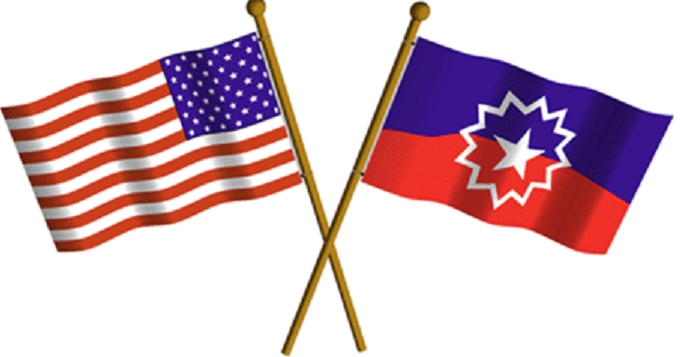Let’s Imagine a U.S. American Holy Week
What is the relationship between Juneteenth and the 4th of July? I’m going to address that question by referring to Christianity’s Holy Week.
Church goers hear a combination of admonition and lament from pulpits as Holy Week approaches: “You can’t understand and experience the meaning of Easter unless you attend to the stories of betrayal, suffering, and crucifixion.”
In many, perhaps most, congregations, attendance on Palm Sunday (a week before Easter Sunday) and Easter Sunday spikes. But Thursday (Last Supper), Friday (crucifixion), and Saturday (waiting) services are much thinner. “Too many Christians want to move from the seeming triumph of Palm Sunday to the celebration of Easter without the pain, anger, sadness, and despair of Holy Week,” is an oft-heard clergy reflection.
I thought about these Christian holy day experiences during the lead-up to and then the celebrations of Juneteenth this year. (And, as an aside, I offer my deep thanks and profound admiration for the Black leaders in Tulsa. They offered a tremendous witness to the best of America this year, between the celebration per se, their savvy in dealing with an unwelcome visit, the non-violent protests, and attention to the eyes of the world being on Tulsa.) I don’t think I’ve experienced a 4th of July, except maybe in 1976 during the celebration of the Bicentennial, when there has been more reflection on what U.S. America is and should be. And I’m sure there has been no 4th that offered reflections on the nation as helpfully critical as were proffered this year during Juneteenth.

The U.S. flag with the Juneteenth flag.
What is the relationship between Juneteenth and the 4th? Certainly, the story of the 4th requires Juneteenth as the compromises made among our white Fathers to rebel against England and write a constitution included the institution of slavery. One can’t tell a simple story about freedom in the U.S.
The U.S. American story as told on July 4th is incomplete. The story requires other holidays/holy days in order to flesh out the fullness of the story, and to tell a truer story. Celebrating the 4th without Juneteenth is akin to celebrating Easter without walking through passion week, with its defeats, betrayals, and suffering.
Just as a thought experiment: what would happen if every year we U.S. Americans celebrated a national holiday/holy week? Which holidays together would tell a truer, more inclusive, more nuanced story about which we U.S. Americans might reflect and come together? Which holidays might contribute to an “Out of many, one” experience?
As a thought experiment, imagine this cycle (and please set aside the objections to moving holiday dates that are wedded to a calendar day):
- Day 1—Indigenous People’s Day
- Day 2—Immigrants’ Day
- Day 3—Labor Day
- Day 4—Memorial Day
- Day 5—Golden Rule Day
- Day 6—Juneteenth
- Day 7—A day for fasting, reflection, repentance
- Day 8—July 4th—Freedom and justice for all day
Can you imagine the power of a July 4th preceded by celebrations of and reflections on the histories, cultures, and current realities of: original peoples and lands of the Americas; all the immigrant experiences; the labor (paid and unpaid) that built and sustains the nation; the spiritual and voluntary communities that teach us to extend our circles of care; the wars which we’ve thought so important (whether or not they were) that we sent our people to die; and more? Can you imagine the opportunities to be reminded both of aspirations for equality, equity, self-rule, and freedom of the people who make up U.S. America and the ongoing consequences of colonialism, wealth inequality, and racism?
The holiday times must include opportunities for honest storytelling–the good, the bad, the ugly, the beautiful.
Oh, I suspect that putting together a week like this is impossible, nothing more than a fantasy. Can you imagine the nasty politics that would shape or derail plans for the week? Can you imagine that week not devolving into campaign wars? I can see the idea for a U.S. American “holy/holiday” week dying a death of a thousand cuts. Quickly.
But the thought experiment does beg essential questions about the meaning of and relationship between American holidays. Besides creating opportunities for retailers to manufacture sale periods and for Americans to buy more stuff, how do we mark our holidays? How do we think about them together?
Imagine all the potential for education and for changing hearts as well as minds that, with the right leadership around the country, might be enabled by a concentrated holiday week.
I leave you with one example of where this thought experiment touches my mind and my heart. Using the comparison to Holy Week, is the 4th or is Juneteenth more akin to the triumph of Easter? I’m still pondering the answer.
_________________________________________________________________________________
Dr. Gary Peluso-Verdend is president emeritus at Phillips Theological Seminary and is the executive director of the seminary’s Center for Religion in Public Life. The opinions expressed in this blog are those of the author. Learn more about the Center’s work here and about Gary here.


Leave a Reply